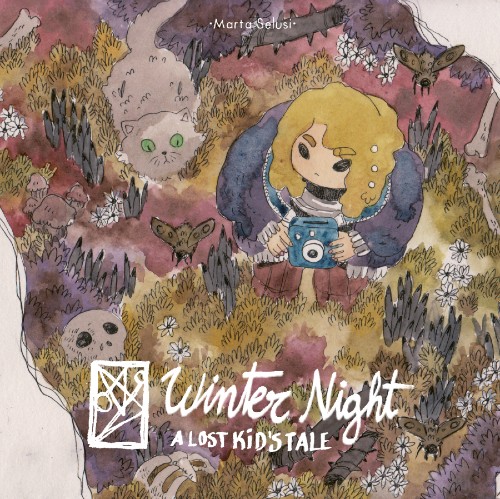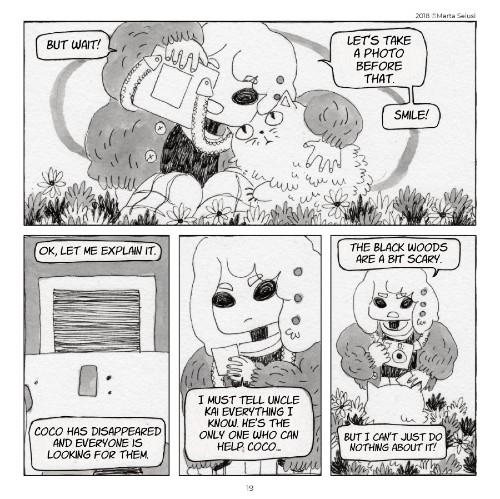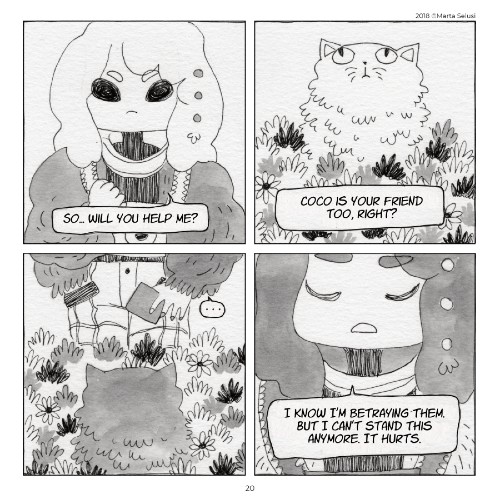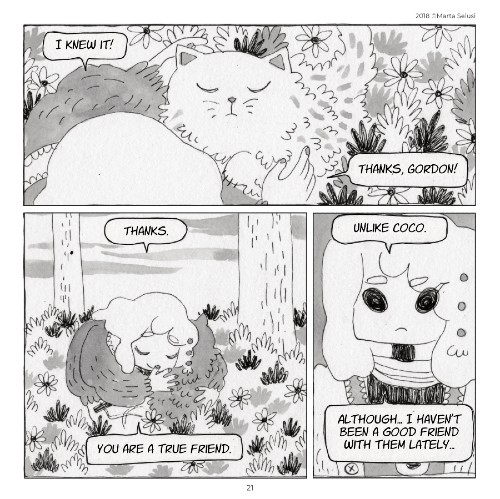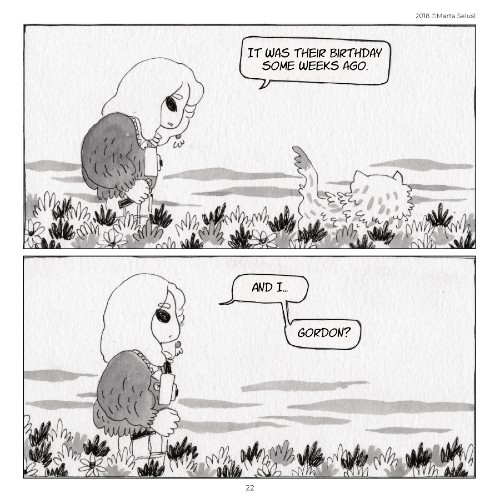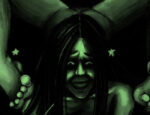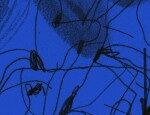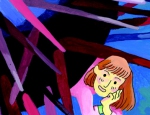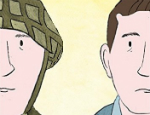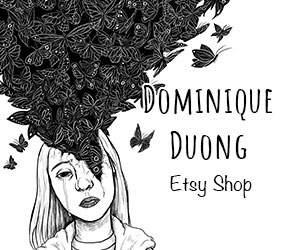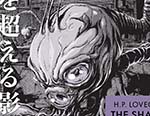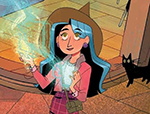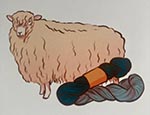Marta Selusi’s second graphic novel, Winter Night: A Lost Kid’s Tale tells the story of Shu, a young boy who wakes up one morning to find his mother gone and realises his friend Coco is missing. It only takes until the second page for the fantasy genre to make itself known, as Shu quickly determines the dream he just woke up from must be a ‘magic dream’ and rushes off. This sets a tone that continues throughout the rest of the comic, as references to the magical and ethereal are mentioned nonchalantly, as hurdles Shu meets along his journey. Luckily, Gordon the cat accompanies Shu on his search and proves to be a worthwhile companion…
Being dropped right into the action allows the scope of the world to be hinted at without having excessive exposition interrupt the narrative. The loose, free-hand style of Selusi’s linework portrays just the right amount of detailing to bring the world she has created to life whilst maintaining a simplicity that offsets the darker moments with a cartoonish charm. The intricate details reveal Selusi’s unrelenting imagination; full page panels zoom us out of the action to remind us of the breadth of the fantasy world Selusi has created and the vulnerability of Shu, who we can easily forget is just a child. Intricate linework is used to further flesh out the world with a myriad of textures and designs and the sudden introduction of watercolour for a dream sequence emphasises how the dream gives Shu hope amidst the darkness.
While these technical effects add flavour to the external world, the whimsical elements epitomise the childlike perspective of Shu, our anxious protagonist who must navigate a really quite dark and sinister environment to find his friend. On the one hand, the contrast between the charm of the characters and the world they inhabit dilutes the sinister narrative Winter Night: A Lost Kid’s Tale would otherwise portray, thereby allowing the reader a gentle invitation into the world. Yet, on the other hand, this contrast elevates the darker undertones, magnifying their threat in a way that represents Shu’s anxiety and the negative filter this results in.
Shu’s anxiety is also referenced to in a more metaphorical way; the slow transformation into a werewolf can be seen as a visual manifestation of the exponential shifts in physical side effects that accompany a panic attack. This transformation occurs at the crux of the conflict in Winter Night: A Lost Kid’s Tale, as Shu tries to cope with his anxiety in order to continue moving forward towards his goal: “Everything has changed so suddenly. What will mom say? What will everybody say?”. This exemplifies how anxiety can be exacerbated by concern about how it may be perceived by others, and the spiralling thoughts it can produce.
The loose style of the artwork, and the fact we can even see the texture of the paper used, makes this comic tactile and personal, as though we are being told this story around a campfire. This intimacy makes sense, as Selusi writes at the end of the comic about how the story is influenced by her own experience with anxiety. Shu’s anxiety is embodied in him becoming lost in both a metaphorical and literal sense, while Gordon the cat provides insights to remind Shu, and the reader, that it is trusting yourself that matters most: “I know you are tired Shu, but we can’t start doubting right now”. The fact that Gordon uses the plural pronoun “we” could imply that he has not really learnt to talk, as Shu presumes, but is actually an extended facet of Shu’s own thoughts. In this interpretation, Gordan becomes Shu’s attempts at self-reassurance, and provides hope during the challenges he faces.
This comic is a delightful read; along with Gordon’s words of wisdom, it allows a bountiful escape into a fantasy world that makes you only want to learn more about it. At the same time, Winter: A Lost Kid’s Tale takes a very grounded and honest approach to a mental health issue that effects a lot of individuals, especially now in all of the current uncertainty, and testifies to the ongoing battle many are fighting internally every day.
Marta Selusi has just released the full version of her graphic novel on Gumroad for €7, but you can read the first half on Tapas for free.
Review by Rebecca Burke





